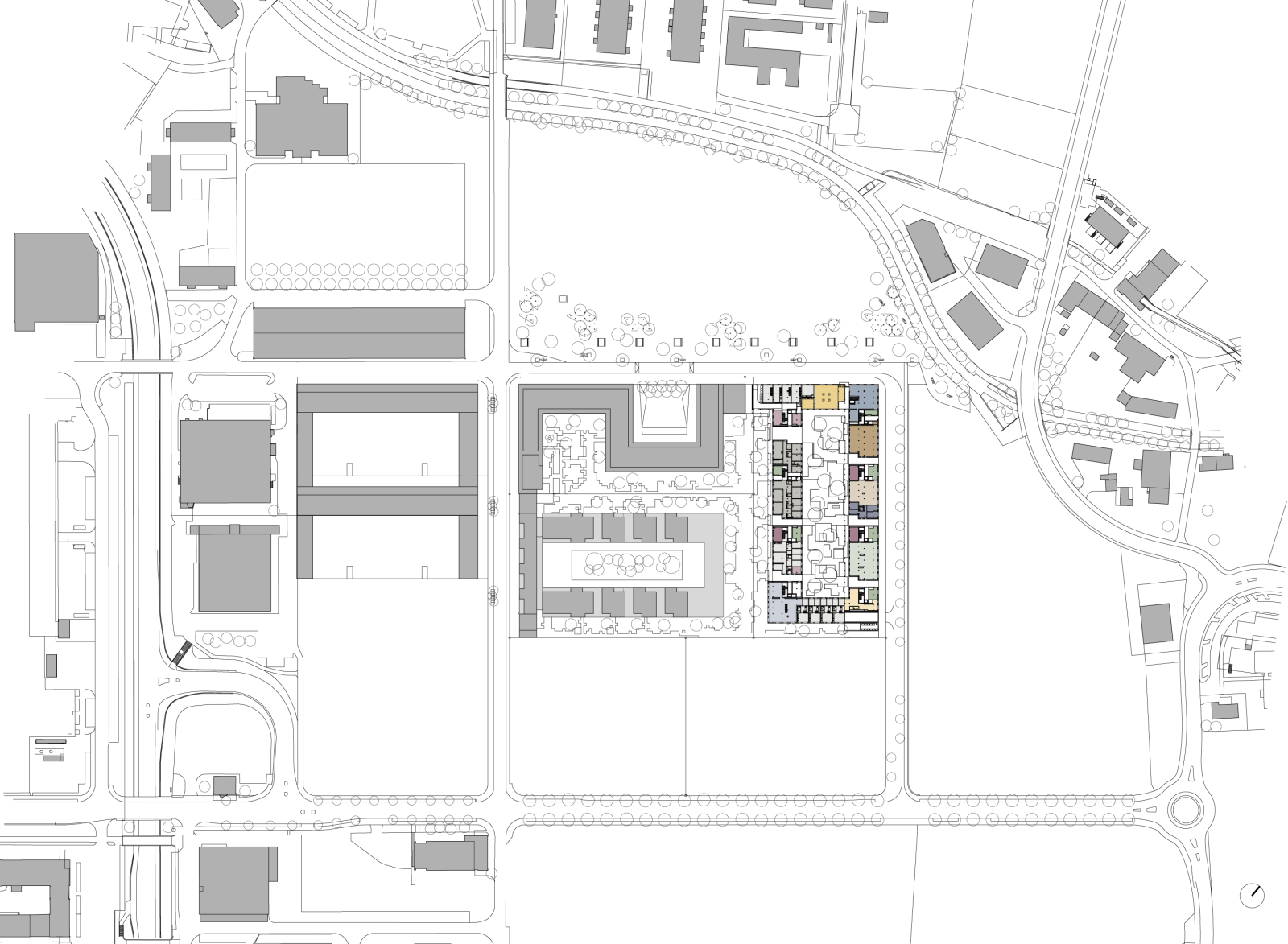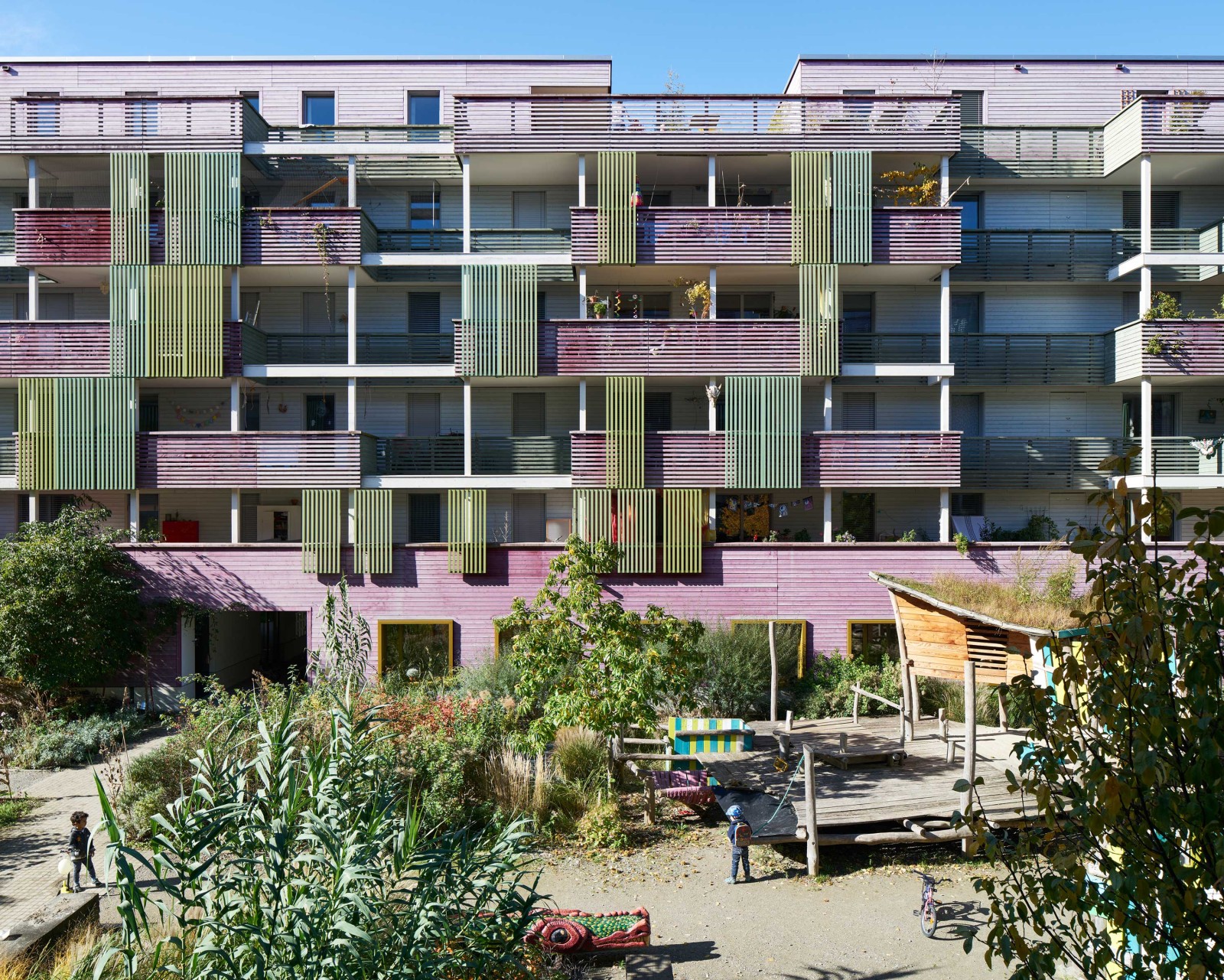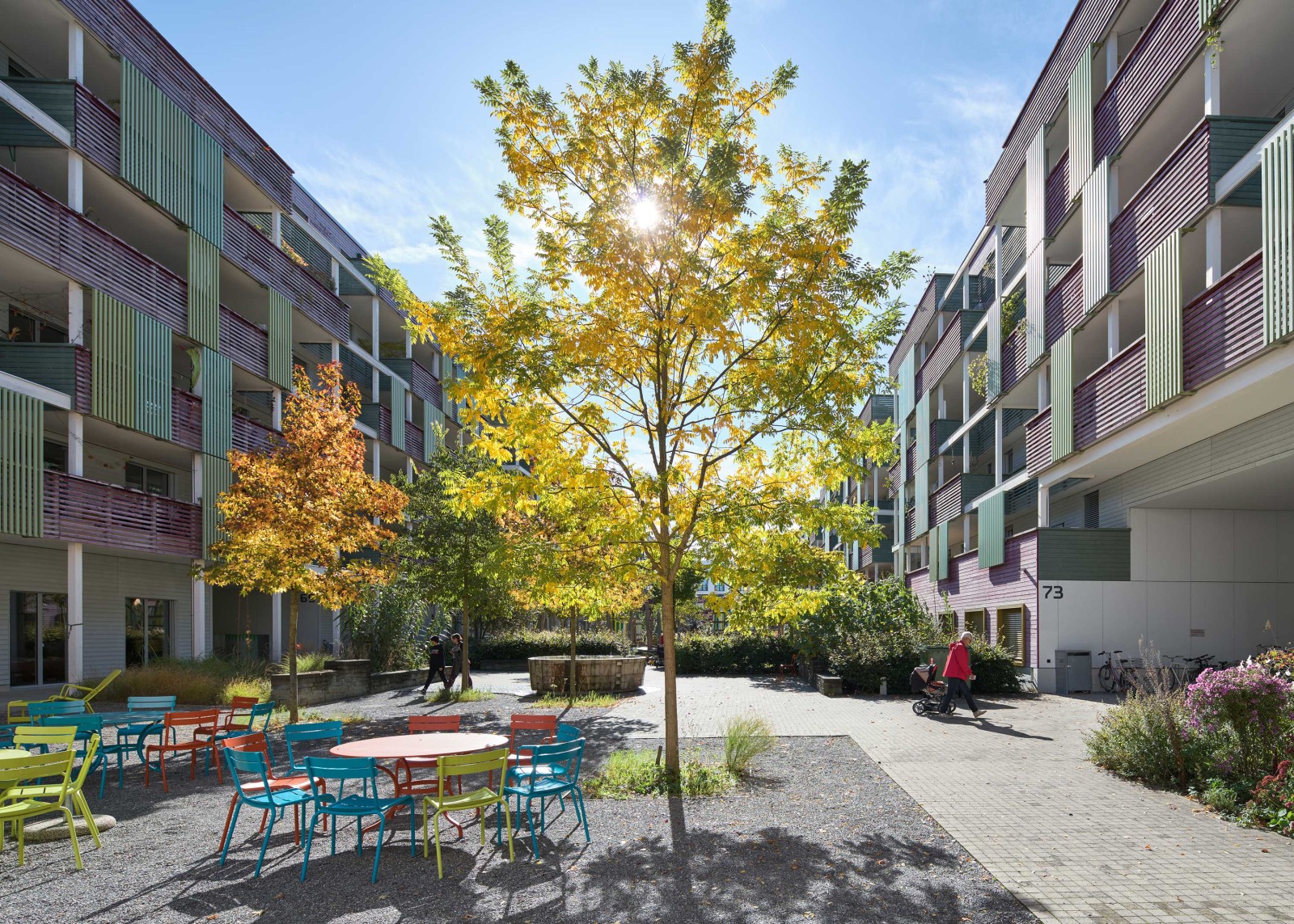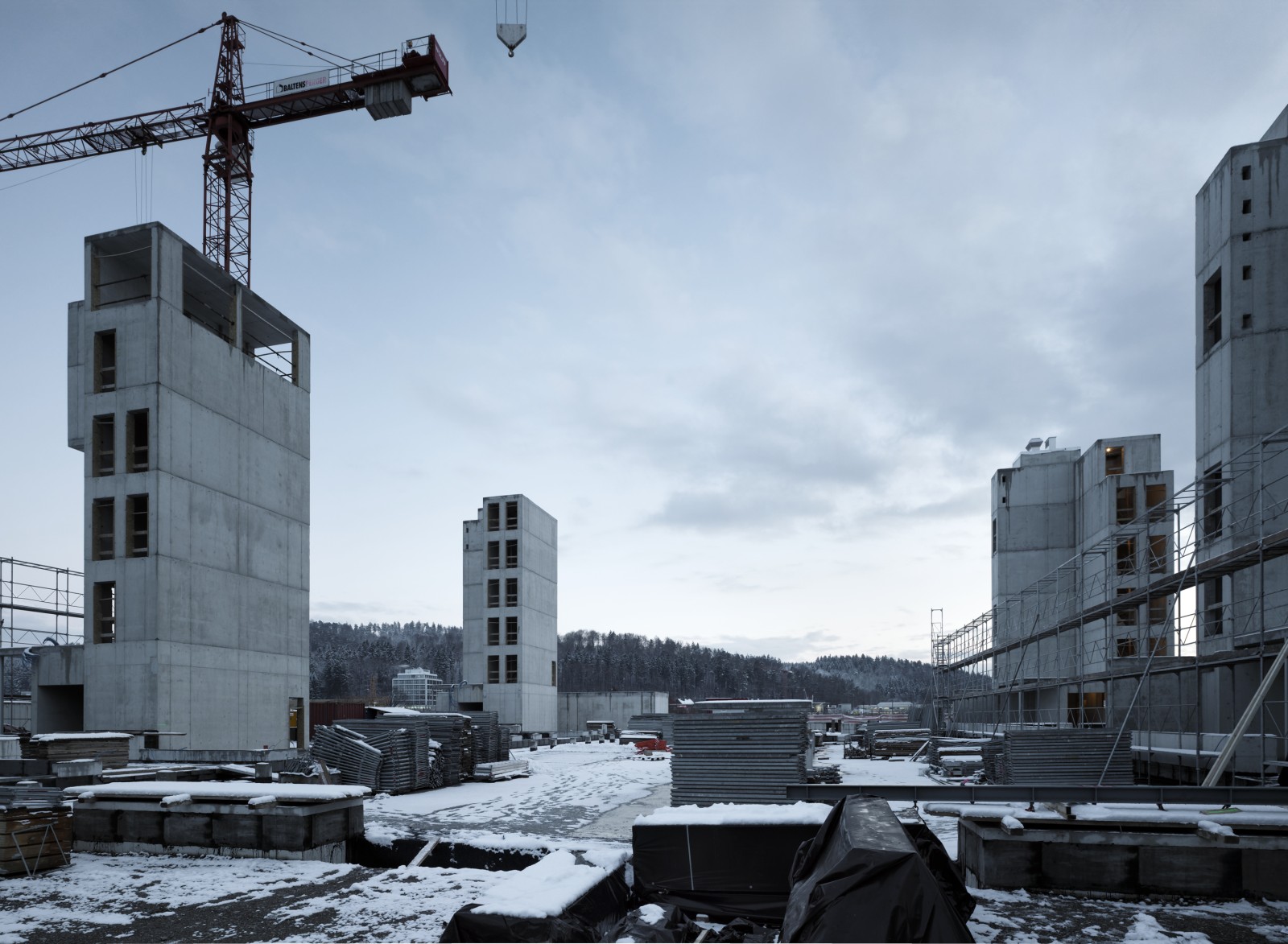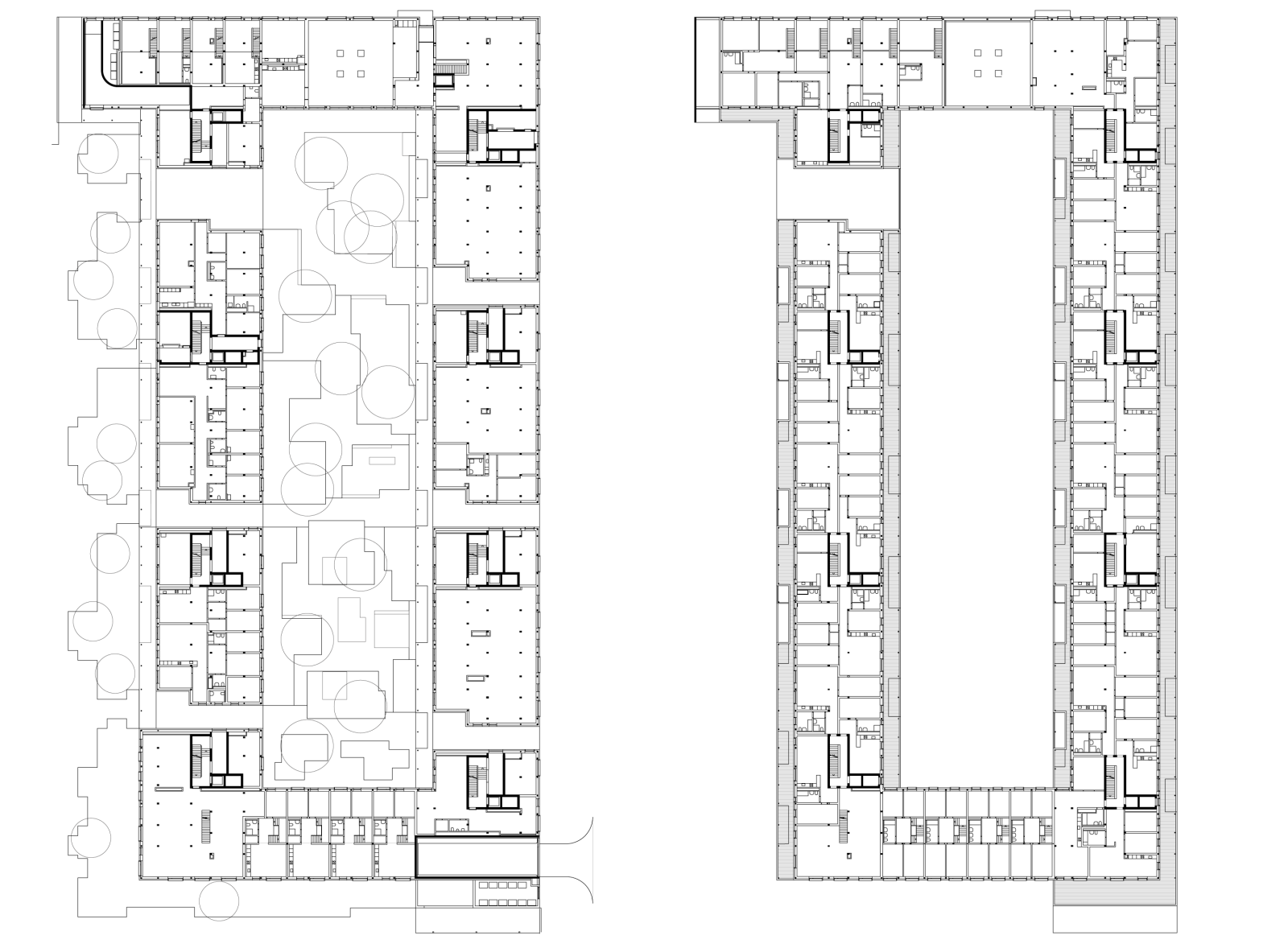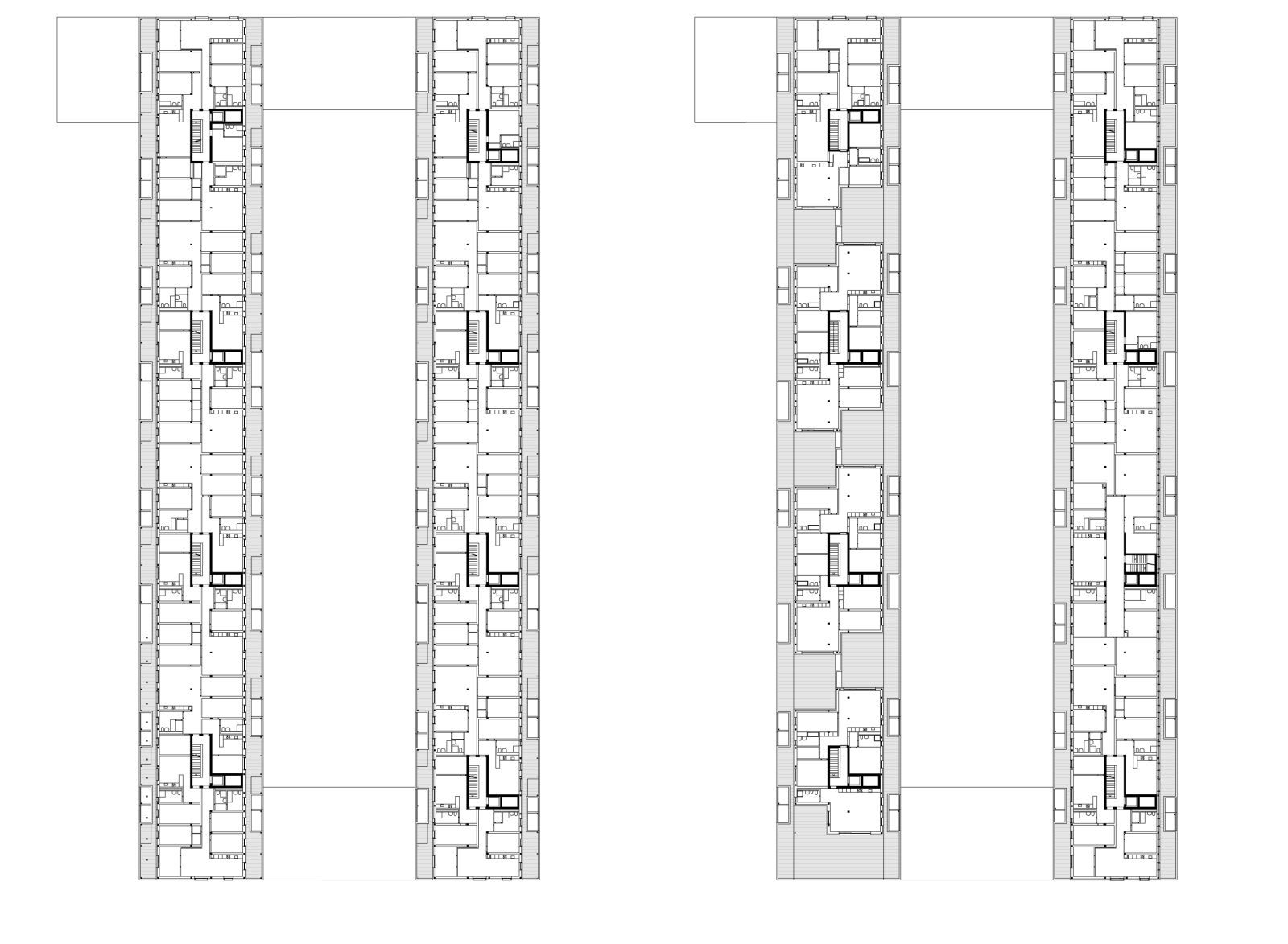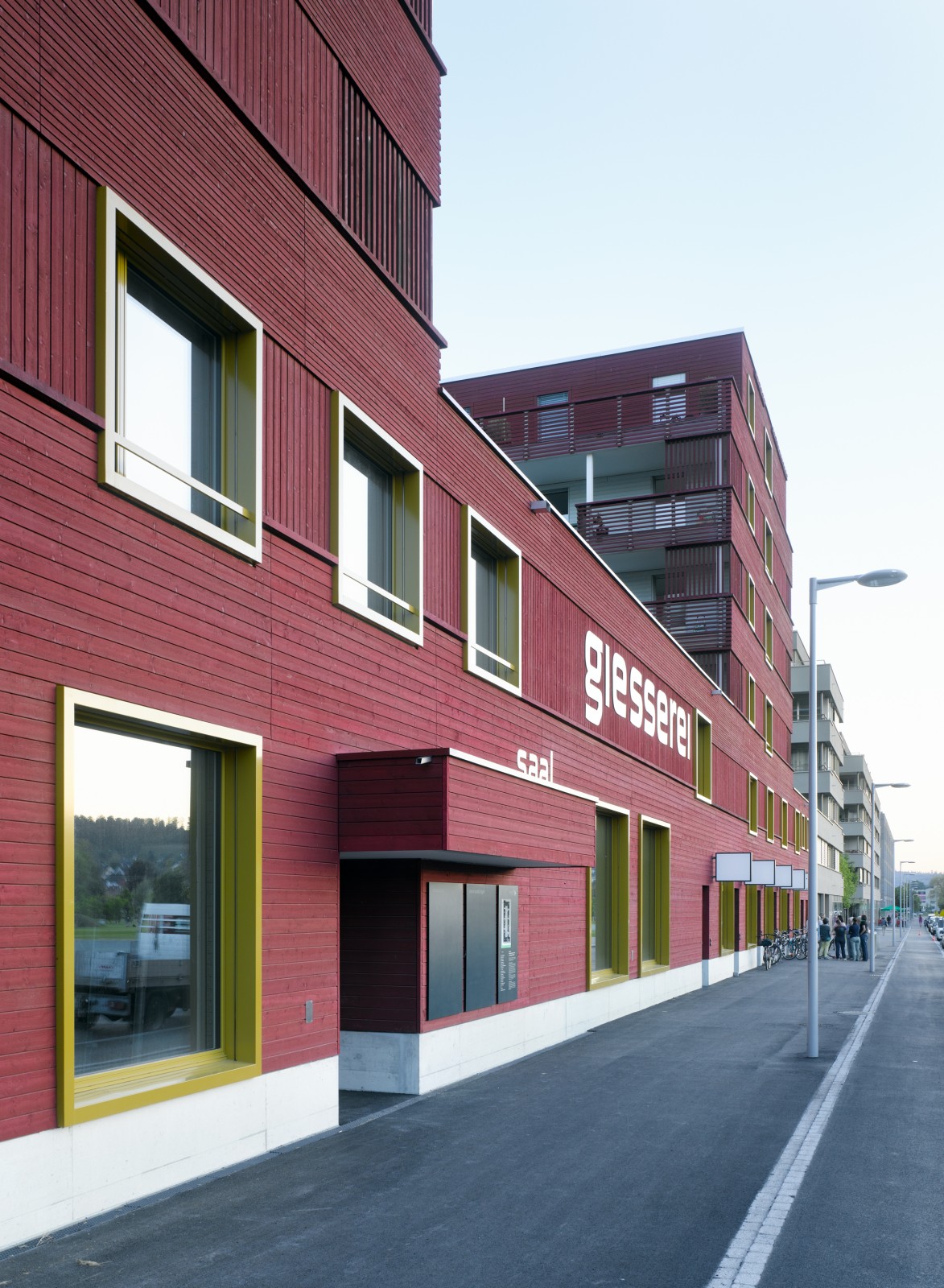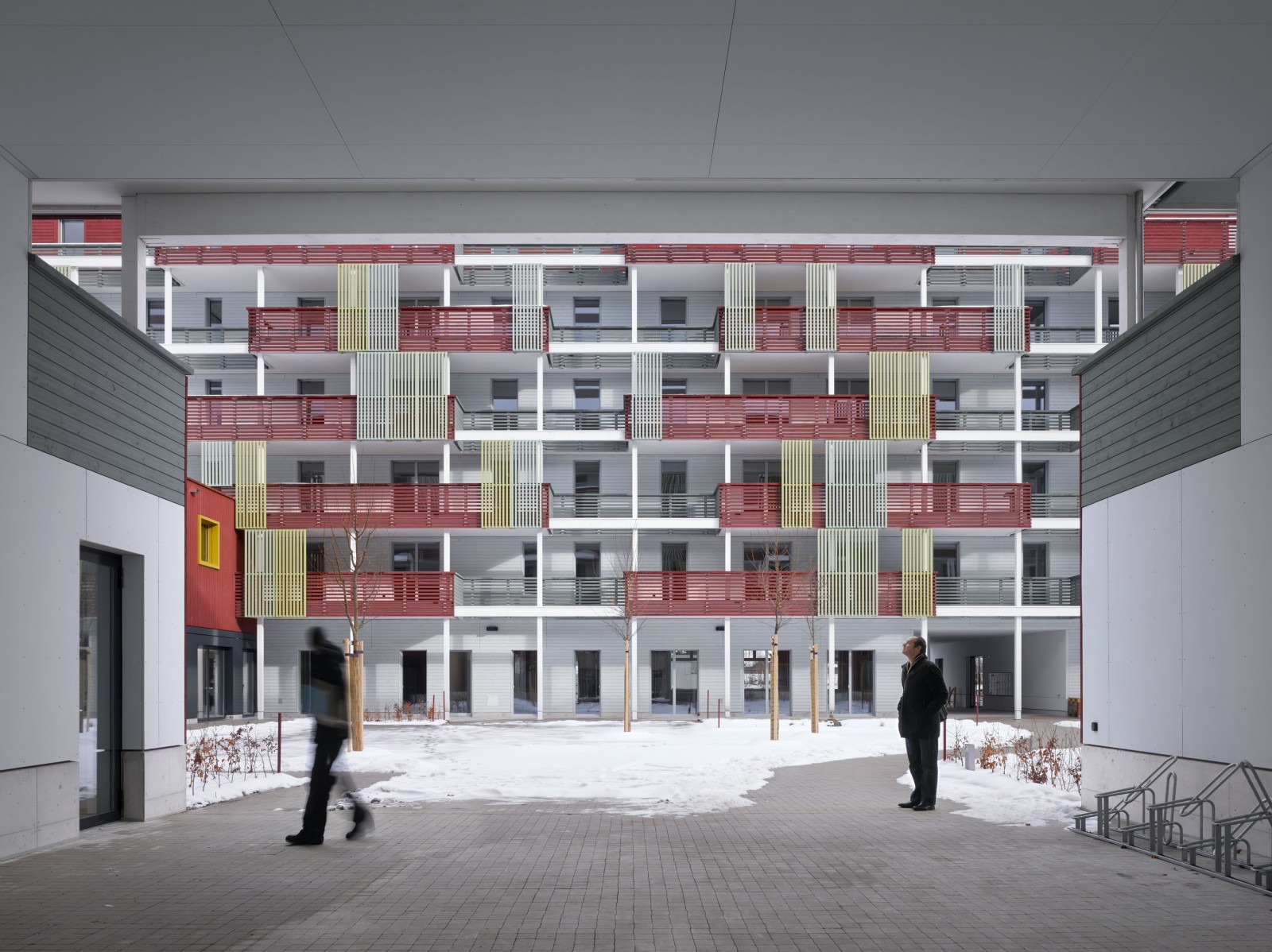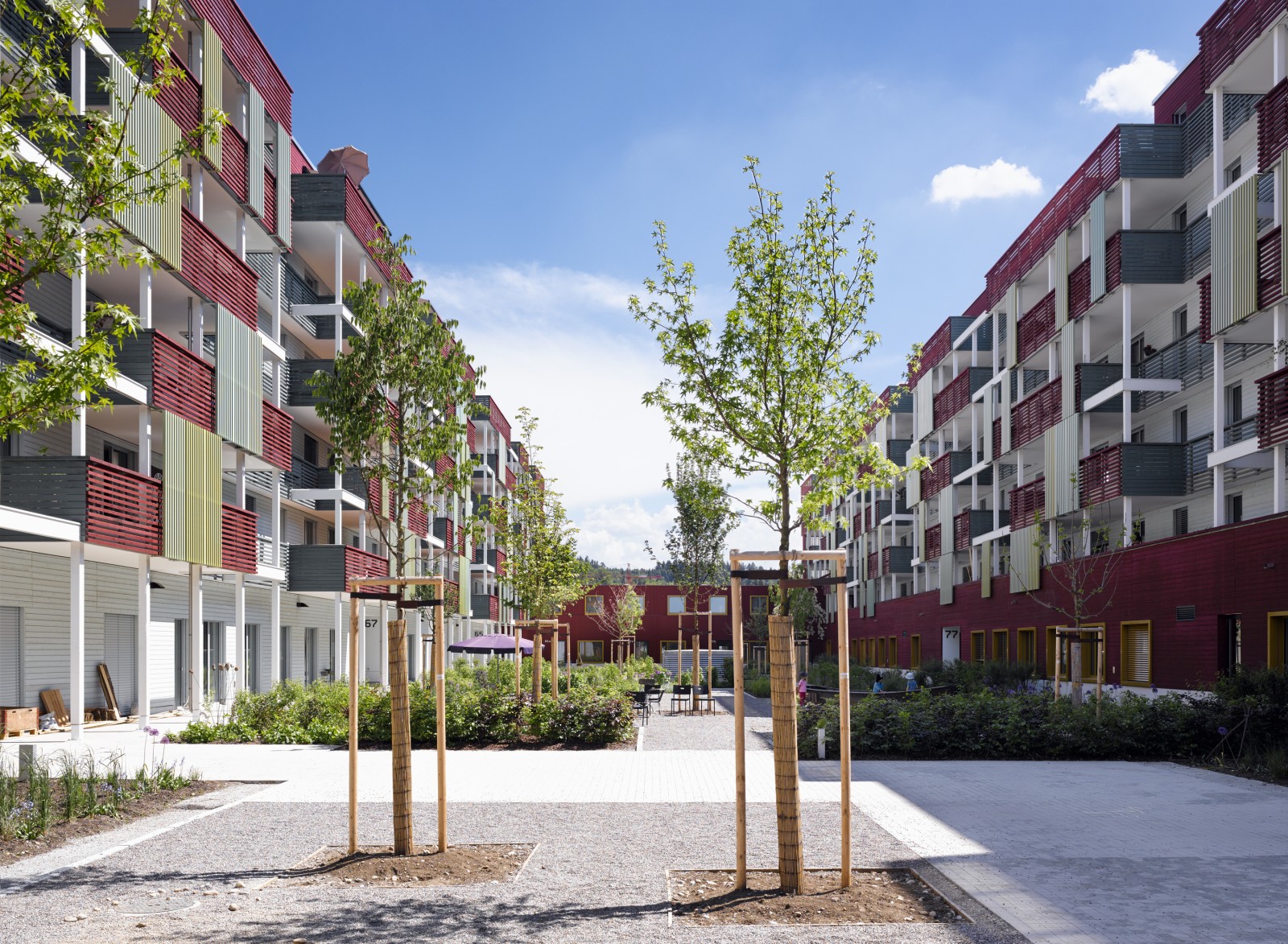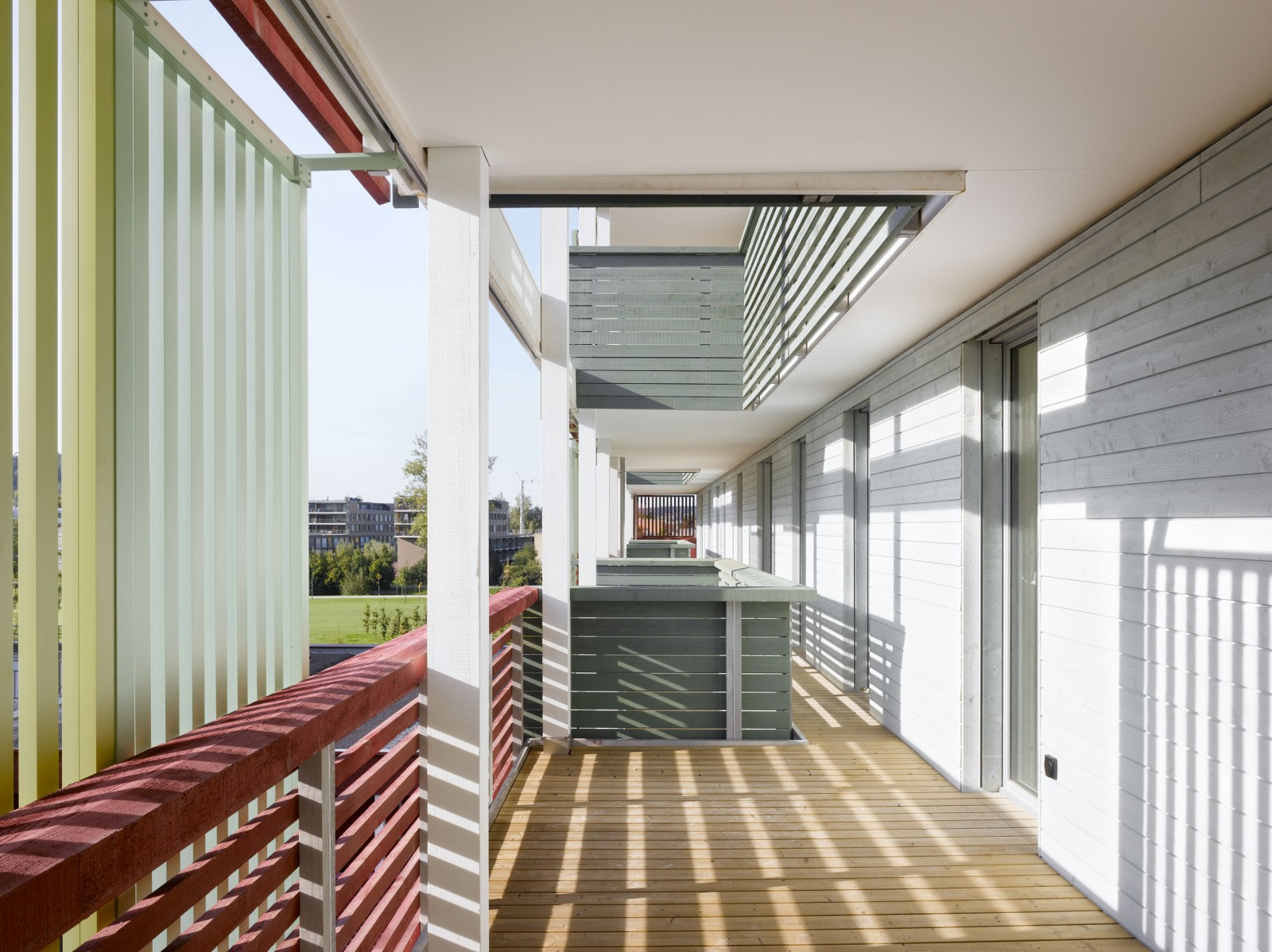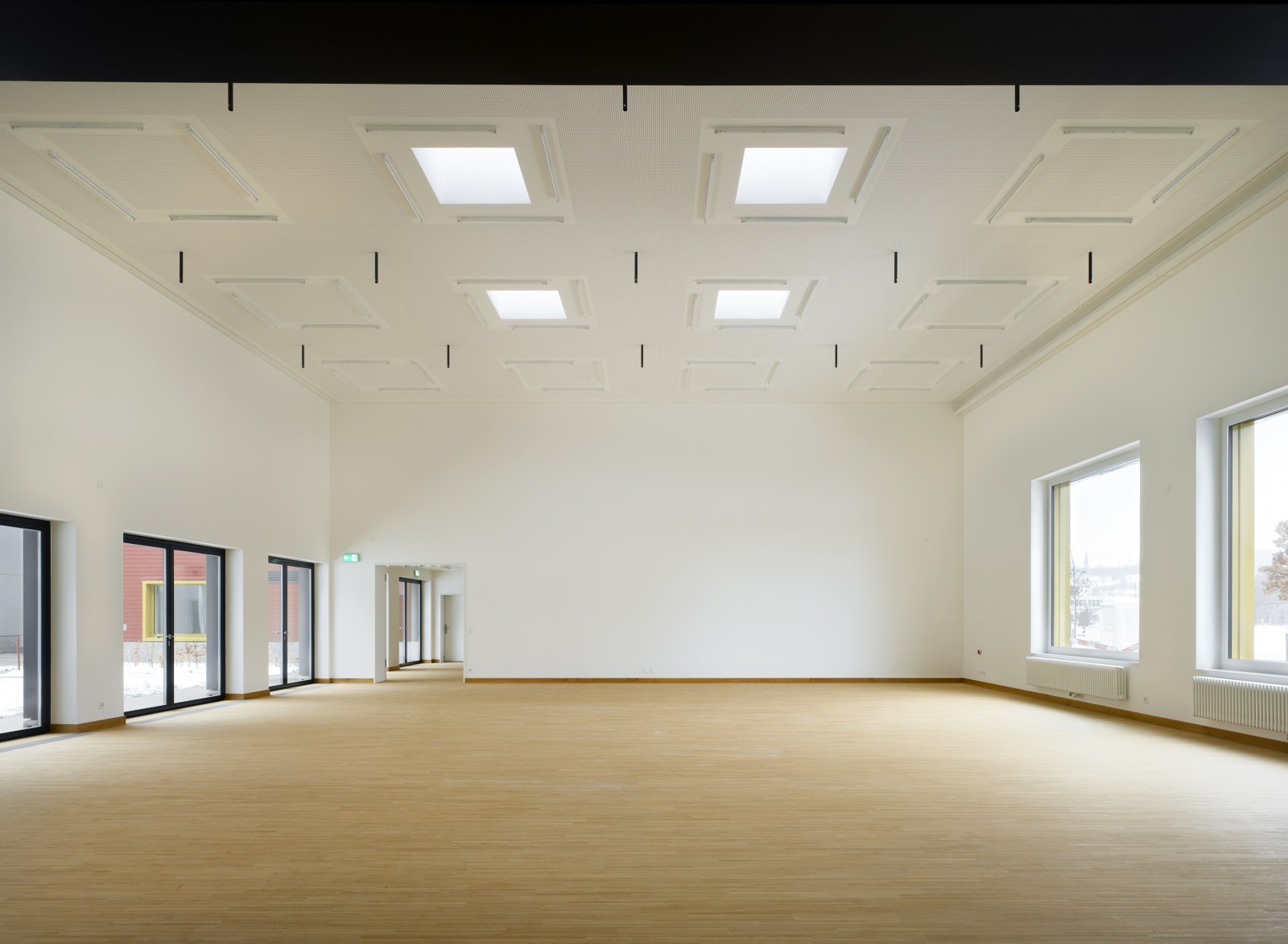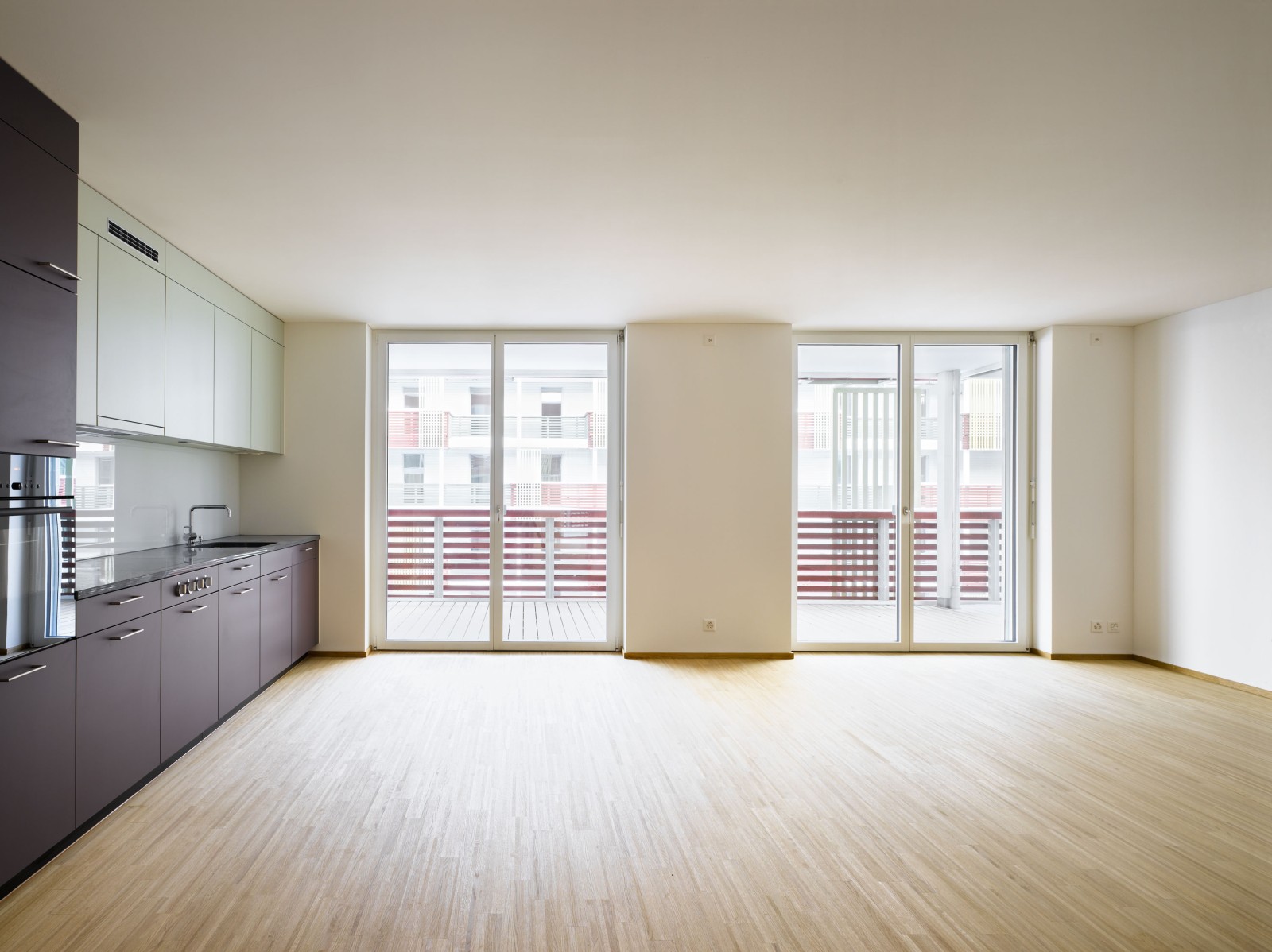Multigenerational building «Giesserei»
Close| Site | Winterthur, ZH |
| Client/Organizer | GESEWO, Winterthur |
| Year: | 2009 - 2013 |
| Type |
|
| Program |
|
| Mode | Project competition selective, 1. Rang |
| Collaborators | Claudio Schiess, Jens Gerber, Thomas Taufer-Laffer, Katja Hoff, Valeria Schmidt-Pitsch |
| Construction management | ph-Baumanagement AG, Frauenfeld |
| Civil engineer | Indermühle Bauingenieure, Thun |
| Building technology | Advens AG, Winterthur |
| Electrical engineering | EGO-Elektrikergenossenschaft, Winterthur |
| Acoustic and building physics | BAKUS Akustik & Bauphysik GmbH, Zurich |
| Sustainability | Büro für Bau- und Umweltchemie, Zurich |
| Landscape | Rotzler Krebs Partner GmbH, Landschaftsarchitekten, Winterthur |
| Bild | Hannes Henz, Zurich |
| Status | Realized |
| Project Number | 120 |
The multigenerational house is situated in the development area Neuhegi on the premises of the Sulzer company’s former foundry in Oberwinterthur. The program included an urban master plan which would translate the footprint and the large-scale dimensions of the factory halls into a spatial concept for the new development. Adjacent to the site, the spacious public Eulachpark stretches along the bank of the Eulach stream; the park was newly created by the City of Winterthur to improve the living quality in the developing quarter.
Two six-story longitudinal buildings in north-south direction together with two lower lateral buildings frame a courtyard. On the ground level, a variety of public uses animate the whole residential complex. In the apartments above, entrance spaces, corridors, living and dining rooms form continuous room arrangements, which open to the facades on one or two sides. The meandering loggias of the floor plan have been realized as garden rooms for the apartments. As a continuous room layer they shape the appearance of the facades on the four longitudinal fronts. In alternating intervals they are interrupted by double-story openings, thus creating an interplay between the single- and double-story areas. Additionally, the colorful, horizontally arranged wooden slats of the balustrades together with vertical sliding elements create lively and oscillating exterior spaces.
Adhering to the high ecological criteria of the program, the whole building is constructed as a wooden structure. The stairwells and basement in concrete and the interior cladding in gypsum are exceptions in this regard, following the fire standards for six-story wood constructions. The modular floor plan system is based on a fine room grid coherent with the wood construction. It allows for a wide variety of different dwelling dimensions as well as forty-three different apartment types. There are additional “joker rooms” with bathroom that can be rented, apartments with two to seven rooms, and an apartment with nine rooms, designed for a larger living community. The east-west alignment of the two longitudinal buildings furthermore allows for mini-apartments that are only oriented towards one side along the efficient circulation.
The 155 apartments in total can be accessed via eight stairwells, each servicing up to five units per story. A multifaceted and differentiated dwelling variety and multilayered room arrangements create the framework for a mixing of all generations and living concepts in this highly selforganized cooperative.
